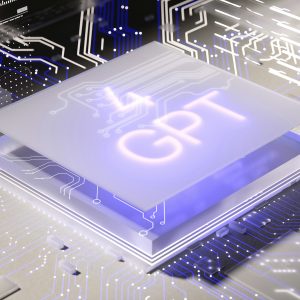Off-grid inverters are essential in the 21st century energy solutions landscape. They serve as a bridge between renewable energy sources and the appliances we use every day, turning direct current into alternating current. This makes it possible to power the devices in the absence of a direct connection to the traditional power grid. Over time, and with the acceleration of the transition to renewable energy, these inverters have seen substantial improvements. Thanks to technological advancements, they have adapted and evolved, offering ever more efficient solutions to meet the growing demand for clean and sustainable energy. It is in this context that this article aims to dive into the heart of the most promising innovations shaping the future of off-grid inverters.
 Artificial Intelligence (AI) Integration
Artificial Intelligence (AI) Integration
The era of digitalization and connectivity has paved the way for the integration of artificial intelligence in many areas, including off-grid inverters. The next generations of inverters could be equipped with sophisticated AI systems. These systems will have the potential to deeply analyze energy consumption trends, dynamically adjust load management as needed, and even anticipate changes in demand. The impact of this fusion between AI and inverters would result in optimized energy use, ensuring an accurate response to consumer needs while maximizing battery life.
Improved Efficiency
Energy efficiency is at the heart of today’s concerns. As a result, the off-grid inverters of tomorrow will be the result of years of research and development to push the boundaries of efficiency. We can expect to see the emergence of even more advanced energy conversion technologies, incorporating state-of-the-art components. These components will not only increase overall performance, but will also reduce energy losses during the conversion phases. In addition, thanks to innovations in materials and design, these inverters promise to deliver more stable and reliable power, while being more energy efficient.
Renewable Energy Integration
With the growing awareness of the climate emergency and the craze for renewable energy, off-grid inverters are faced with an imperative to adapt. Beyond simply converting energy, they must now integrate harmoniously with various sources such as solar, wind or hydro. With this in mind, consider advanced renewable energy storage systems, coupled with smart management platforms. These innovations would not only ensure a more efficient use of energy but also better regulation, making it possible to make the most of every ray of sunlight or breath of wind.
Miniaturization and Portability
Mobility is at the heart of modern trends, and off-grid inverters are no exception. As we move towards an increasingly nomadic world, the demand for compact and transportable devices continues to grow. Whether it’s for electric vehicles, outdoor equipment, or even emergency kits, inverters need to reinvent themselves. Thus, one could imagine ergonomic designs, light and robust, merging convenience and performance. However, this quest for miniaturization should never come at the expense of the device’s ability to deliver consistent and reliable power.
Advanced Energy Storage
The energy sector is booming, especially with the rapid progress in energy storage. Batteries, especially lithium batteries, as well as other emerging technologies, are revolutionizing the way we store and use energy. In the future, off-grid inverters will need to be designed to be in perfect symbiosis with these innovations. By integrating sophisticated algorithms, they could optimize battery charge and discharge management, ensuring not only more efficient use of energy but also increased longevity of storage systems.
FAQ’s
What are the benefits of integrating artificial intelligence into off-grid inverters?
Artificial intelligence can optimize load management, predict energy needs, and improve overall system efficiency.
How can renewables be integrated with off-grid inverters?
Inverters could be designed to work in tandem with renewable energy sources, allowing for optimal use of the energy produced.
Could portable off-grid inverters be used while camping?
Yes, portable off-grid inverters could be ideal for camping equipment by providing a self-sustaining power source.
What energy storage technologies are likely to influence future off-grid inverters?
Lithium batteries and other advanced energy storage technologies could play a key role in optimizing the performance of off-grid inverters.
How can I keep up to date with the latest technological developments in this field?
Follow news, trade blogs, and online communities focused on renewable energy and energy storage technologies to stay up-to-date.
Conclusion
Technological developments in the field of off-grid inverters are opening up new perspectives for the efficient and sustainable use of energy. From the integration of AI to the improvement of efficiency and the integration of renewable energy, these developments aim to meet the growing need for clean and autonomous energy. By monitoring trends and staying informed about the latest innovations, you’ll be able to make informed choices for your energy system.



